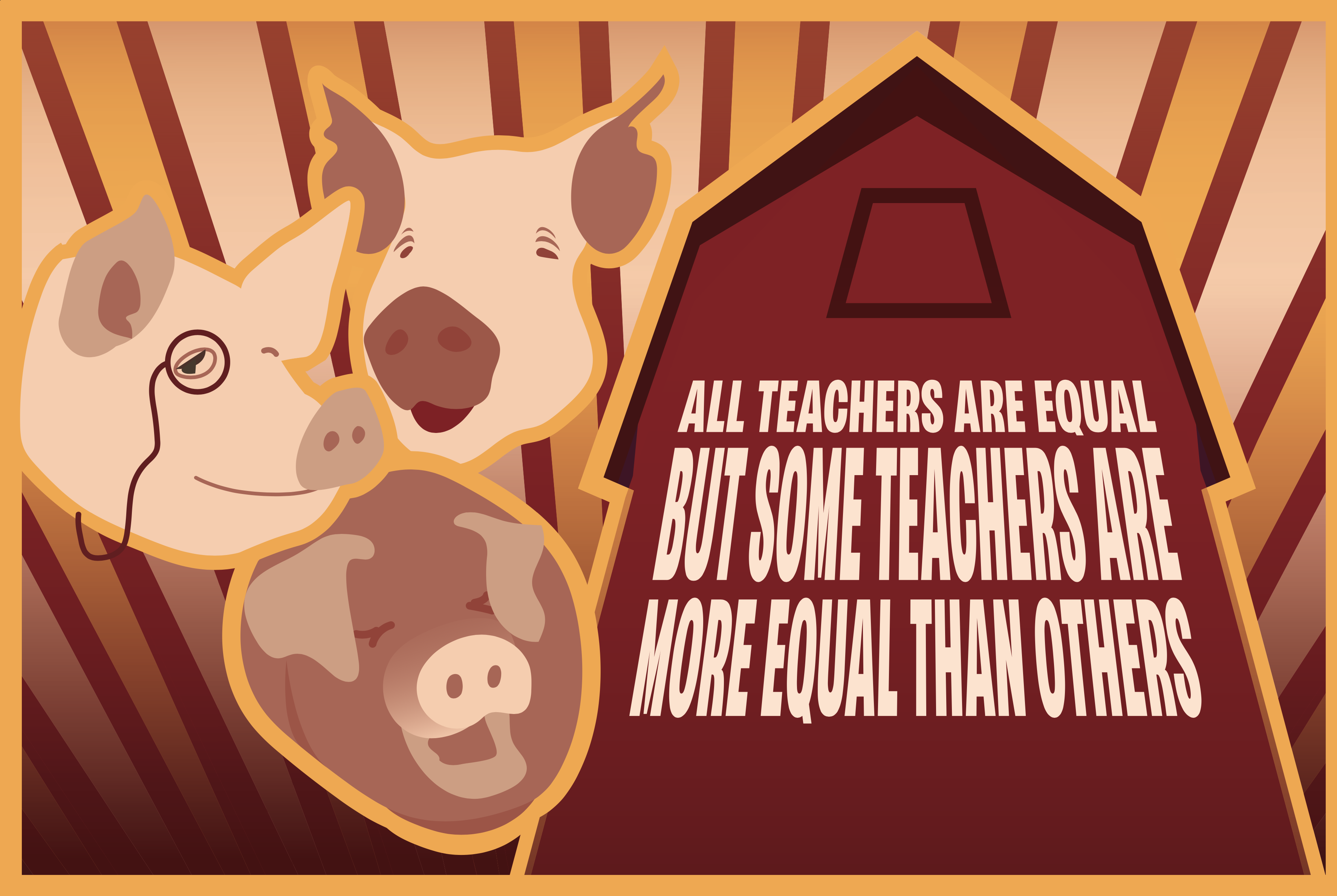To paraphrase George Orwell, “All unionized teachers are equal; it’s just that some are more equal than others.”
Once upon a time, teachers’ unions were established with the noble goal of protecting the rights of educators by advocating for higher pay and working conditions. The sales pitch also included heartfelt assurances that improved compensation for teachers would attract better qualified candidates and produce better education outcomes.
Over time, the unintended consequence for teachers is that, as the union grows, it becomes less transparent and less responsive to its members. Unions in general, and teachers’ unions in particular, eventually become more concerned with their own self-preservation and the accumulation of power than the well-being of their members, let alone satisfying students or their parents.
And some teachers become more equal than others.
Union leaders often use their influence to protect the interests of veteran teachers who’ve been reliably paying dues to the union for many years, while newer, less experienced teachers — whose loyalty can’t simply be assumed — are left to fend for themselves.
This is particularly evident when it comes to issues such as salary negotiations, promotions and even job security. Union leaders are notoriously more focused on protecting the interests of their most senior members, even if it means throwing young teachers under the school bus.
Moreover, organized labor pioneered the use of propaganda, and modern unions have raised the use of deceitful rhetoric to a high art form. Union leaders often use propaganda to rally their members around certain issues or to promote their own interests. They use persuasive language to create a sense of solidarity among union members, even if when it’s built on a foundation of lies and intimidation.
One of the most insidious forms of union propaganda is the notion that teachers are always under attack from external forces, such as politicians or school administrators. While it is true that teachers face many challenges in their work, this type of propaganda can create a siege mentality among union members, leading them to view anyone who questions their actions or motives as the enemy.
Teachers’ unions have their place in our education system, but it comes at a cost. By the time unions become large enough, wealthy enough and powerful enough to dictate terms to management, they are also able to ignore the simple workplace concerns of the teachers they claim to represent.
Some teachers can become more equal than others, and when unions resort to propaganda to rally their members, it can create a toxic environment that undermines the very principles of education.
As with any organization, there’s a thin line between having the resources to achieve your aims and being so powerful the objectives you organized to pursue in the first place are no longer important to you.









